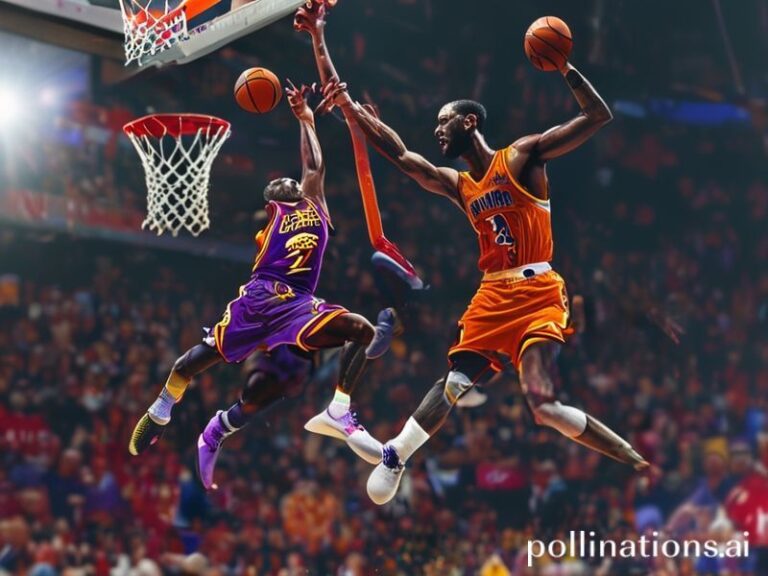Luis Castillo: The 97-MPH Metaphor for Our Globalized Circus
In the grand, gaudy casino of global baseball, where every slider is a geopolitical statement and every fastball a referendum on national virility, the name Luis Castillo keeps popping up like a bad penny—or, depending on your passport, a really good one. From the aluminum-roofed ballparks of the Dominican winter league to the corporate cathedrals of the American Midwest, Castillo has become a transcontinental Rorschach test: some see a 97-mph metaphor for post-colonial athletic export, others merely a guy who makes $15 million a year to throw a sphere really, really hard.
Let’s start in Santo Domingo, where the concept of “Luis Castillo” is less person than cottage industry. Every barrio has at least one uncle who swears he taught him a change-up in exchange for a plate of mangú, and every corner store sells bootleg T-shirts emblazoned with his face next to a crying eagle—liberté, égalité, slider away. The Dominican Republic currently supplies 11% of all Major League Baseball labor, a statistic the World Bank politely calls “talent migration” and local economists call “the only reliable export that doesn’t spoil in customs.” Castillo, then, is both hometown hero and remittance machine, wiring back hope in dollars while his family wires back guilt in WhatsApp voice notes.
Meanwhile, in Seattle—home of the Mariners, Boeing, and an ever-expanding homeless encampment beneath the same retractable roof—Castillo’s 2022 trade deadline acquisition was hailed as the franchise’s moon landing. Local columnists wrote breathless sonnets about “changing the trajectory of the Pacific Rim,” as if a two-seam fastball could rebalance supply chains or talk Xi Jinping out of Taiwan. The front office celebrated by raising ticket prices 18%, citing “market pressures,” a euphemism for “we think you’ll pay to watch a guy from Baní throw a baseball faster than Amazon delivers deodorant.”
Zoom out and you’ll notice Castillo is merely the latest draft pick in humanity’s longest-running fantasy league: rich countries plucking kinetic talent from poor ones, then acting surprised when the talent wants a 401(k). The same week Castillo signed his five-year, $108 million extension, Spain was deporting Dominican migrants back to Santo Domingo with all the solemnity of a middle-manager shredding an expense report. Somewhere in between flights, a customs agent stamped a passport and wondered whether the value of a human arm depreciates faster than a Boeing 737 Max.
Of course, the arm itself is insured by Lloyd’s of London—because nothing says “timeless pastoral sport” like a Lloyd’s underwriter calculating actuarial tables on ulnar collateral ligaments. Should Castillo blow out his elbow, surgeons in Birmingham or Barcelona stand ready to harvest a tendon from his wrist and stitch it into the joint like a medieval tapestry. The operation costs more than the average Dominican earns in a lifetime, but that’s the beauty of globalization: you can always find a poorer country to subsidize your dreams.
And yet, for all the spreadsheets and geopolitical metaphors, there remains something stubbornly human in the ritual: a man standing on a mound of imported clay, 60 feet 6 inches from another man holding a stick made of northern ash, while 30,000 strangers chant in languages neither speaks fluently. It’s the sort of moment that makes the IMF update its PowerPoint and God Himself lean over the celestial railings to check the line score.
So when Castillo toes the rubber tonight against, say, the Yankees—an organization so imperial it might as well issue its own currency—remember you’re watching more than baseball. You’re watching a supply chain in cleats, a remittance with a rosin bag, the entire absurd circus of global capitalism distilled into 95 pitches and a post-game press conference. Win or lose, the exchange rate resets tomorrow, and some kid in Baní is already warming up his arm, dreaming of the same devil’s bargain. The world keeps turning; the fastball just makes it spin faster.







